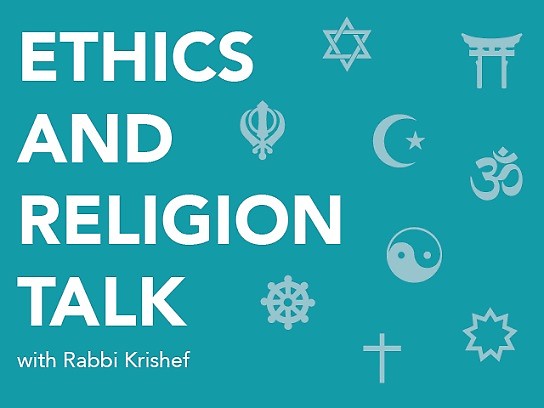The Rev. Rachel J. Bahr, pastor of Plymouth UCC, responds:
I don't believe that the goal among Progressive Christians is that there are multiple truths or alternative facts. Rather, when a person says that they are going to speak their truth, it is not that they are claiming that they have their own unique universe or reality. Instead, they are offering their particular perspective on the one shared reality. In previous generations, the demographics of those describing and judging reality were fairly homogeneous, i.e., white, cis-gender, heterosexual men of wealth. World history was written by white men, comprehensive studies of sexuality were written exclusively by heterosexual men. The movement of marginalized people speaking their truths, (i.e. women, people of color, people with disabilities, LGBTQI folks), sought to give a more complete perspective on history, art, and philosophy. The goal has ever been to make our understanding of Truth fuller by including different perspectives. As progressive Christians, we condemn the unethical manipulation of facts, which is tantamount to lying. There are some who may believe by including our voices that Truth is being destroyed. Another way to see this is that the veil has been lifted, and finally folks are being welcomed and heard.
Father Michael Nasser, who writes from an Eastern Christian perspective and is Pastor of St. Nicholas Orthodox Christian Church, responds:
Christianity is not unique among religions in that it teaches that which is considers the truth. It is unique in claiming that its founder is the truth. Jesus said, ‘I am the Way, the Truth, and the Life (John 14:6).’ This is a growing scandal in a world where the growing acceptance of what is called ‘political correctness’ which holds that all truth is relative. This sets at ease all groups who subscribe to this idea -- everyone has their own truth and it only needs to be true for them. Before the advent of this relativism, there were, of course, times of intense conflicts among religions but they were they were in actuality very rare and even more rare as conflicts which were about teachings. Most often, political differences were merely exacerbated by distinct cultures within each group, and the religious/cultural difference was used to fuel the conflict.
But now that relativism is being accepted as the new, universal orthodoxy, there is a growing intolerance for any who do not subscribe to relativism. According to this ideal no one is allowed to postulate that a truth is superior or in conflict with a truth held by another, even if the one holding it does not intend to impose it on anyone else. This was shown recently in another confirmation hearing before the Senate judiciary committee (no, not that one). Sen. Dianne Feinstein (D-Calif.) spoke about her concerns with appeals court nominee Amy Barrett during a hearing on Sept. 6 by stating ‘The dogma lives loudly within you, and that's a concern.’ Whether or not this new intolerance of the idea of objective truth leads to self-destruction is unclear. What is clear is that it is beginning--ironically--to increase conflict.
Fred Stella, the Pracharak (Outreach Minister) for the West Michigan Hindu Temple, responds:
Humanity has always expressed a wide variety of opinions in attempting to decipher ultimate truth. Sometimes it has led to brilliant leaps in civilization, and other times to mass destruction. We certainly can hold different views on some things without terrible consequences. In Hinduism there exists the value of multiple schools of thought along with the tradition of honest debate.
The problem arises with both extremism and greed. For instance, those who continue to disbelieve in man made climate change could very likely contribute to the demise of many populations, though science indicates total extinction is highly unlikely.
Ultimately I believe we can all benefit when we are willing to allow new information to modify our actions. Sadly, when one embraces a fundamentalist world view there is a built in bias against such a thought process. I've always said that I would die for my faith but solid reasoning and evidence could change my mind.
The Reverend Colleen Squires, minister at All Souls Community Church of West Michigan, a Unitarian Universalist Congregation, responds:
The question reads ‘our society keeps on accepting various forms of truth.’ I think it is important to clarify this by saying some of society is accepting these various forms of truth and then there are others who view these comments as lies. Truth is often provable and this is the beauty of truth. Habitual lying absolutely erodes trust and can lead to a general feeling of anxiety in our society. While some may enjoy these lies as entertainment this is not the mark of a noble leader. At some point regardless of our beliefs we all know when the Emperor is not wearing any clothes and we are made foolish if we believe otherwise.
This column answers questions of Ethics and Religion by submitting them to a multi-faith panel of spiritual leaders in the Grand Rapids area. We’d love to hear about the ordinary ethical questions that come up on the course of your day as well as any questions of religion that you’ve wondered about. Tell us how you resolved an ethical dilemma and see how members of the Ethics and Religion Talk panel would have handled the same situation. Please send your questions to [email protected].
The Rapidian, a program of the 501(c)3 nonprofit Community Media Center, relies on the community’s support to help cover the cost of training reporters and publishing content.
We need your help.
If each of our readers and content creators who values this community platform help support its creation and maintenance, The Rapidian can continue to educate and facilitate a conversation around issues for years to come.
Please support The Rapidian and make a contribution today.
